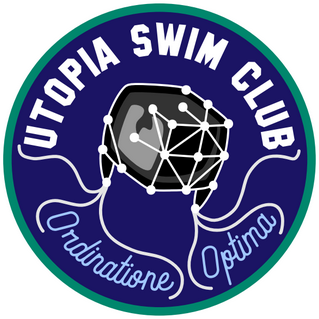
Sensing Algorithms
2018-ongoing
Co-PI’s: Sophia Brueckner and Christian Sandvig (Communications/Information)
Co-I’s: John Granzow (Performing Arts Technology), Catie Newell (Architecture), William Calvo-Quirós (American Culture)
As human experience is increasingly digitally mediated, encounters with work, leisure, information, and space are now produced by algorithms. For many people, sense is now computed—hidden calculations in computers determine what rises to their awareness. More and more, we inhabit an algorithmically constructed reality governed by “black box” algorithms that are personalized to each of us, yet not well understood. The stakes of this mediation are high and reach beyond the risks of inefficiency or confusion: misunderstanding the operation of algorithmic systems has led to the circulation of misinformation, medical errors, privacy breaches, the automation of unlawful discrimination, and even death. Important research in human-computer interaction (HCI), visualization, and “explainable” artificial intelligence (AI) seeks to reveal algorithmic decisions and even the motives behind them in order to make everyday algorithms comprehensible. Yet each algorithm’s complexity and at times the secrecy surrounding their operation makes this a substantial challenge. The Utopia Swim Club is made up of faculty and students from diverse departments. We are researching the intersection of the emerging field of algorithmic forensics/“algorithmic auditing” with artistic practices like “found objects” and “assemblage” to understand how pervasive black box algorithms shape our lives. This experimental cross-disciplinary project seeks to attack this problem from a radically different perspective. We borrow tactics and methods of inquiry from artistic and humanistic scholarship and apply them to the problem of exposing and understanding hidden algorithmic decision-making. We are sharing our findings for a wider audience through podcasts, exhibitions, and publications.
Co-I’s: John Granzow (Performing Arts Technology), Catie Newell (Architecture), William Calvo-Quirós (American Culture)
As human experience is increasingly digitally mediated, encounters with work, leisure, information, and space are now produced by algorithms. For many people, sense is now computed—hidden calculations in computers determine what rises to their awareness. More and more, we inhabit an algorithmically constructed reality governed by “black box” algorithms that are personalized to each of us, yet not well understood. The stakes of this mediation are high and reach beyond the risks of inefficiency or confusion: misunderstanding the operation of algorithmic systems has led to the circulation of misinformation, medical errors, privacy breaches, the automation of unlawful discrimination, and even death. Important research in human-computer interaction (HCI), visualization, and “explainable” artificial intelligence (AI) seeks to reveal algorithmic decisions and even the motives behind them in order to make everyday algorithms comprehensible. Yet each algorithm’s complexity and at times the secrecy surrounding their operation makes this a substantial challenge. The Utopia Swim Club is made up of faculty and students from diverse departments. We are researching the intersection of the emerging field of algorithmic forensics/“algorithmic auditing” with artistic practices like “found objects” and “assemblage” to understand how pervasive black box algorithms shape our lives. This experimental cross-disciplinary project seeks to attack this problem from a radically different perspective. We borrow tactics and methods of inquiry from artistic and humanistic scholarship and apply them to the problem of exposing and understanding hidden algorithmic decision-making. We are sharing our findings for a wider audience through podcasts, exhibitions, and publications.

White Flag: Career, Motherhood, Family, Flatline is an example of the types of interdisciplinary inquiries our team conducts into black box algorithms. Interpreting algorithmically-calculated interests as visual art, we queried Facebook for the list of their “topics of interest” identified automatically by Facebook’s algorithms. Facebook matches these topics with a thumbnail image from Wikimedia Commons using an unknown process. The “topics of interest” shown here were selected for me by Facebook and read, “Time, Woman, Infant, Child, Adolescence, Cohabitation, Career, Motherhood, Family, Flatline.” The white flag evokes surrender, although it was probably intended by Facebook as a placeholder. Presented as a visual checklist, it resembles a timeline or the progress bar from a video game. The list as a whole is strikingly gendered and sexist.